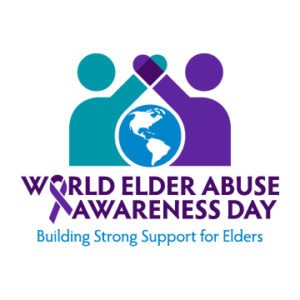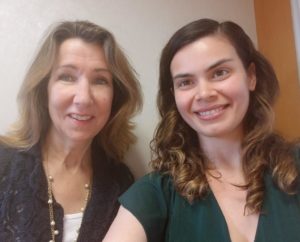You’ve Worked Hard for the Money — Now Protect It!
Reading Time: 2 MinutesLast Updated: August 19, 2021
 Most of us work hard to save and plan for our retirement. But there are people who work just as hard to take it away from us. Who are they? Phone scammers.
Most of us work hard to save and plan for our retirement. But there are people who work just as hard to take it away from us. Who are they? Phone scammers.
While I was working from home the other day, my phone rang three times. A robotic voice told me that I was in debt to the IRS and needed to pay immediately or I would go to jail. I knew it was a scam because the IRS will NOT contact me by phone; but, I wondered, if I were home alone and did not know these types of scams exist, would I be frightened enough to send money?
We must educate ourselves about the ways of scammers to protect ourselves and those we love. Phone scammers use several scams, such as the Grandparent Scam, the Computer Software Scam, and the very popular, “You’ve just won!” To handle these scam calls, do not pick up the phone. Let your answering machine take a message and then delete it. If you pick up, never send money. Instead, pause before doing anything. Then, call a loved one to get their opinion, check with your bank, or phone the IRS directly to check on your status. Unfortunately, many older Americans send money right away when this happens to them.
Also, please be aware that Medicare has begun to mail out new Medicare cards that no longer show your Social Security number. This is good news! It helps protect you. However, senior citizens may not know this. The bad news is that scammers are pretending to be from Medicare to get their private information.
World Elder Abuse Awareness Day, on June 15, aims to promote a better understanding of this type of abuse and neglect of older persons by raising awareness. Financial elder abuse can take many forms, from IRS and Lottery scams to theft of money by trusted people. However, financial is only one form of elder abuse happening daily. Other types include physical, emotional, and sexual abuse, as well as neglect.
The National Center on Elder Abuse (NCEA) is a resource center at the Keck School of Medicine at the University of Southern California. They provide resources to educate people about all types of elder abuse, including information and resources to help detect, intervene, and prevent abuse. Two fact sheets, Scammed? Now what… and The Grandparent Scam, provide scam information. Training resources on elder abuse are also available. Visit NCEA’s website to learn more about protecting yourself, your loved ones, and your community from elder abuse.
 Julie Schoen JD, brings her passion for all aspects of aging issues to her role as Deputy Director of the NCEA. She is an attorney with a strong background in Medicare advocacy who is now having impact in the area of elder abuse.
Julie Schoen JD, brings her passion for all aspects of aging issues to her role as Deputy Director of the NCEA. She is an attorney with a strong background in Medicare advocacy who is now having impact in the area of elder abuse.
Eden Ruiz-Lopez leads grant management, and engages in education and outreach activities at the NCEA, among many other activities. Her background includes a wide range of advocacy, case management and service coordination for older people and people with disabilities.
Did you find this Information helpful?
See Comments
About the Author
Comments
Comments are closed.

JB H.
Scam lacking in many areas of life. Even in the development of sites and hosting for them. By the way, on here http://webhosting-store.com/ you can choose an honest and high-quality provider.
JB H.
Scam lacking in many areas of life. Even in the development of sites and hosting for them. By the way, on the WebHosting Store you can choose an honest and high-quality provider.
JB H.
http://webhosting-store.com/
Dennis F.
Are gambling winnings reportable to SSA? Obviously, they are for IRS, but are winnings considered if a person has a threshold amount that they can earn in a year?
Wedevelop
Great article. If u want a trustable Website development service. https://wedevelop.ca
anastacia z.
I got a message on my cellphone that my social security will be suspended because of suspicious activity
ask me to press 1 and is asking for my last four numbers I did not give my last four numbers for me sounds like a scam because the caller’s accent is like from the middle east accent here is the phone number 347 349 5455 from new York.
Daniel F.
I got a phone call today, Monday, June 24, 2019 from 866-887-8997 informing me my SSN has been reported stolen and will be cancelled. Far-fetched, but the number is a SS office number.
Jenna Y.
Hi, Daniel. We take allegations of fraud very seriously. If you suspect fraud, waste or abuse of Social Security benefits, we encourage you to report it. Suspicious calls should be reported to the Office of the Inspector General at 1-800-269-0271 or online. You can also report these scams to the Federal Trade Commission through a new site specific to Social Security scams, here. Thanks also for helping us fight fraud.
Jon
I was just contacted by 518-618-3086 asking me to call them back at this number claiming that he was a SSA Rep and he was officer Joseph Gagloff and that he wanted to question me about legal proceedings that the SSA was underway to prosecute me… When I asked the location he hung up… I knew it was fraud/scam for many reasons, but I worry others will fail to recognize….
Vonda V.
Hi Jon. Thanks for letting us know. If the caller is claiming to be from Social Security—it is critical that you pay attention to the tone and content of the message from the caller. In some cases, the caller states that Social Security does not have all of your personal information, such as your Social Security number (SSN), on file. Other callers claim Social Security needs additional information so the agency can increase your benefit payment, or they threaten that Social Security will terminate your benefits if they do not confirm your information. This appears to be a widespread issue, as reports have come from people across the country. These calls are not from Social Security.
If you receive a call from someone claiming to be from Social Security, we urge you to always be cautious and to avoid providing sensitive information such as your SSN or bank account information. Never reveal personal data to a stranger who calls you, and never send the stranger money via wire transfer or gift cards.
Social Security employees will never threaten you for information; they will not state that you face potential arrest or other legal action if you fail to provide information or pay a fee. In those cases, the call is fraudulent, and you should just hang up. If you receive these calls, report the information to the Office of the Inspector General at 1-800-269-0271 or online at oig.ssa.gov/report.